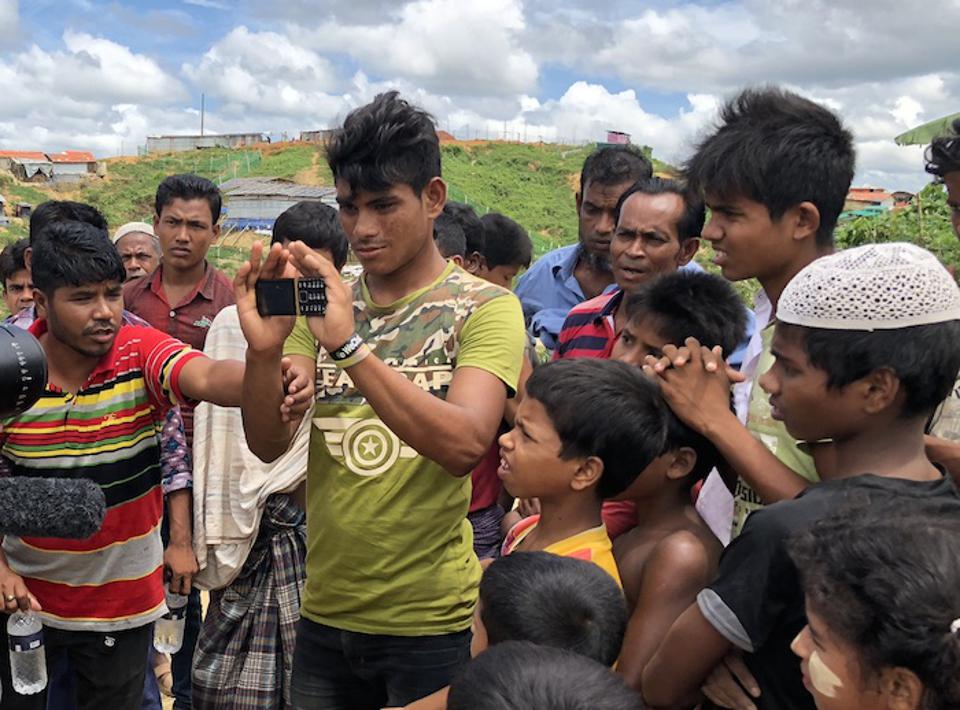Ethereum Classic Labs and the UNICEF Innovation Fund are partnering to drive blockchain-based solutions to some of the world’s most pressing problems. Here’s a look at the first three projects selected to receive funding and other support — and how they aim to improve people’s lives.
Momentum has been steadily building behind efforts to use blockchain technology to help vulnerable children, families and communities. And now the UNICEF Innovation Fund and Ethereum Classic Labs are teaming up to take these efforts to the next level.
As part of this new partnership, ETC Labs will be investing in the UNICEF Innovation Fund, while also providing follow-on financing, mentorship and technical resources to three blockchain start-ups already in the Fund’s portfolio of investments. The support will help the companies further develop, deploy and scale their solutions.

© W3 ENGINEERS
The term blockchain is commonly associated with the cryptocurrency Bitcoin, but there are hundreds of other blockchain applications. ETC Labs’ mission is to help develop and accelerate solutions that operate on Ethereum Classic, one of the world’s major blockchains, and a decentralized, programmable, virtually hack-proof network that is open to all.
Exploring how blockchain can benefit children
The UNICEF Office of Innovation has been working since 2016 to explore how blockchain can be leveraged to benefit children. The team identifies and invests in promising innovations through its Venture Fund, collaborating with other investors, donors and partners to help those ideas grow and scale.To date, there have been 91 such investments across 58 countries.
“Blockchain technology gives us opportunities to revisit existing problems — like the transparency and speed of moving value in large systems — and examine at them in new ways,” said Chris Fabian, co-lead of UNICEF Ventures. “While there is a great deal of hype around the idea of secure, distributed databases, there are also many opportunities for new organizational efficiencies.”
UNICEF has looked at making contracting with partners more efficient, Fabian added, using blockchain technology in Kazakhstan. “We’re moving value from donors to companies that we fund in a matter of seconds on these public, transparent ledgers.”
ETC Labs CEO Terry Culver called the new partnership with UNICEF a “delivery vehicle” for harnessing the use of blockchain to improve people’s lives in some of the most challenging contexts around the world. “We are committed to driving forward and fulfilling the original promise of blockchain to deliver meaningful social impact solutions,” Culver said.
The three start-ups selected to receive support through the new partnership include:
OS City, working toward greater government efficiency — and public trust
This start-up’s software framework combines cloud computing, artificial intelligence and blockchain capabilities to provide a new way for governments to handle contracting and resource allocation — complicated and challenging areas for most developing countries. The goal is to make procurement and other processes more efficient, transparent and market based.
There are modules to serve different needs, from budgeting and permitting to student certifications. Chile’s national government, for example, is already using OS City’s solution to generate tamper-proof records in public procurement, contracting and energy, reducing red tape and corruption.
Prescrypto, an electronic prescription app that keeps personal data safe, private and portable
Using blockchain technology, the Prescrypto team has developed a way to authenticate a patient’s identity before unlocking their personal medical data. Prescriptions are stored in an encrypted database, and patients control whether and with whom to share their medical records and other sensitive information.
The Prescrypto service provides an alternative to the conventional approach, where health care data is stored on private servers that are vulnerable to attack and typically controlled by a single administrator, with little transparency in how the data is handled or commercialized. Blockchain’s novel approach to data ownership and system level governance solves both problems.
The Prescrypto service has already launched in Mexico, where an estimated 1 million prescriptions are processed daily — 99 percent of them handwritten. And interest is growing: the company is handling up to 10,000 prescriptions per month, with 2,500 physicians already on board.
W3 Engineers, bringing connectivity to the unconnected
This start-up company has developed a “mesh messaging” application called Telemesh that uses the Ethereum blockchain to facilitate the exchange of information by smartphone — a critical need in areas where Internet connections and cellular network services are unavailable, and communication networks play a vital role in protecting vulnerable populations.
With support from UNICEF and ETC Labs, the W3 team will continue building out its network, currently operating in a refugee camp in Cox’s Bazaar, home to hundreds of thousands of Rohingya refugees from Myanmar. The team is focusing on using Telemesh to enable emergency broadcasting — issuing alerts such as flood warnings — and peer-to-peer messaging between those living and working in the camp.

© W3 ENGINEERS
The UNICEF Innovation Fund actively seeks partnerships to facilitate the expansion of promising innovations in blockchain among other areas, notes Cecilia Chapiro, Investment Advisor and Blockchain Portfolio Manager for UNICEF Ventures. “Our goal is to promote the creation of digital public goods across the blockchain ecosystem, solutions that take aim at urgent global challenges and change lives,” Chapiro said. James Wo, ETC Labs founder, noted that the future of blockchain depends upon use cases that demonstrate true social and economic impact. “The collaboration with UNICEF Innovation Fund helps achieve this goal.”
To learn more, visit unicefinnovationfund.org. To inquire about partnering with the UNICEF Innovation Fund, email venturefund@unicef.org.
